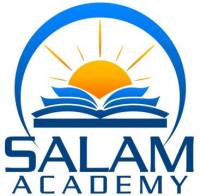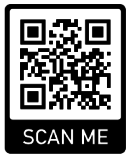Scientists and Professional Program
The Albuquerque community is composed of professional businesspersons, educators, scientists and blue-collar workers. Many are employed in Sandia National Laboratories and the University of New Mexico. Being a college, air force town, the community is cosmopolitan and ethnically diverse.
SA Scientists and Professional Program
The Scientists and Professionals Program at Salam Academy (SA) is designed to allow experts in various fields to interact with SA students in ways that will enhance their knowledge and understanding of technical and other subject matters related to their studies.
The goal of the Program is to provide unique experiences for SA students to learn from the best in their fields and inspire them to become National and World leaders following the role models they interact with.
Although the Program primarily targets local talent pool for scientists and professionals, it is open for participation from experts far beyond local. Interested scientists, engineers, doctors, and other professionals are welcomed to participate in this Program and share with the students their wealth of knowledge. Subject matters of interest to the Program include (but are not limited to): chemistry, entrepreneurship, preventive medicine, physics, space sciences, biology, history and engineering.
In addition to coming to the school premises to interact with students, participants can instead invite students to visit their laboratories and work places. The participants can also be mentors to guide students in their projects in the respective topics of specialty.
Each participant in the Program will receive a certificate of participation from the School in acknowledgement of providing exceptional education to future generations.
NOTE: The members from this program also serve in Institutional Review Board (IRB)/ Scientific Review Committee (SRC) for the Science Projects by the students.
If interested: Please email your updated resume with the information on your area of interest to: board@salamacademy.org
Guest Speakers:
- Heba Ahmed, MS
- Juan Alvarez, SFCC Planetarium
- Shahana Jawadi, RDH
Salam academy's Scientists and Professionals Program comprise of qualified community volunteers who work as mentors for our students.
They act as members of the Internal Review Board (IRB) and/ or Scientifc Research Committee (SRC) to review and mentor science research projects.
REMEMBER…
Affiliated Fair Directors reserve the right to impose stricter rules than those set forth by Intel ISEF, so be sure to check with your Affiliated Fair Director regarding whether or not any more stringent rules are in place in your regintate.
Purpose of ISEF Rules
- Determine Eligibility
- Protect the rights & welfare of the student researcher
- Protect the rights & welfare of the human participant as well as the vertebrate animal subjects
- Ensure adherence to federal regulations
- Ensure use of safe laboratory procedures
- Protect the environment
Key Eligibility/Limitations
- Junior Division Grades 6-8
- Senior Division Grades 9-12
- May only enter 1 project
- May only compete in ONE affiliated fair EXCEPT when proceeding to state/national fair from an affiliated regional fair
- Project may be part of larger study performed by professional scientists, BUT project presented by student MUST be only their own portion of the complete study
- Teams up to 3 students MAX Some regions do not allow teams…check with Regional Fair Director
- It is responsibility of student & Adult Sponsor to evaluate the project to determine if the research will require additional forms and/or PRIOR APPROVAL review.
- Projects that are demonstrations, “library” research or informational projects, “explanation” models or kit building are NOT appropriate types of projects for ISEF Affiliated Fair competition especially at the high school level.
Adult Roles
- Adult Sponsor
- Qualified Scientist
- Designated Supervisor
- Institutional Review Board (IRB)
- Scientific Review Committee (SRC)
Adult Sponsor
- Oversees project & works with student to be sure all applicable Intel ISEF Rules are followed and necessary forms/paperwork are completed in a timely fashion.
- Works with student to be sure all safety and ethical issues are appropriately considered and addressed.
- Completes Form 1 – Checklist for Adult Sponsor
Qualified Scientist
- Required for some projects… provides or delegates direct supervision of student researcher typically in lab/industrial settings
- Doctoral/advanced professional degree related to student research OR Master’s Degree w/ SRC approval
- Completes Form 2 – QS Form
Designated Supervisor
- “Animal Care Supervisor” for vertebrate animal projects
- Supervises projects using Hazardous Chemicals, Activities or Devices
- Supervises projects requiring a Qualified Scientist when the QS cannot directly supervise or is not required
Institutional Review Board (IRB)
- Reviews human participants studies
- Membership – IRB must have at least…
- Educator (teacher, college educator, museum educator w/ proper credentials)
- School Administrator
- A trained professional knowledgeable about evaluating human participants’ level of risk: MD, PA, RN, psychiatrist, psychologist, licensed social worker, licensed/certified clinical professional counselor.
Scientific Review Committee (SRC)
- Reviews specific types of projects BEFORE experimentation.
- Reviews ALL projects just prior to competition.
- Membership MUST include:
- Biomedical scientist (PhD, MD, DVM, DDS, DO)
- Educator (see description on previous slide)
- At least one other member
- Animal projects done in a Regulated Research Institution MUST be reviewed by that institution’s Animal Care & Use Committee per ISEF Rules. Specific documentation is required.
WHEN MUST STUDENT RESEARCH PROJECTS BE REVIEWED AT THE SCHOOL/LOCAL LEVEL?
ALWAYS
Many projects can be reviewed by the Adult Sponsor or classroom teacher without the need for a local review committee. Do this BEFORE the research starts!
When Must an SRC/IRB Review Student Research?
Any research project that involves human participants, non-human vertebrate animals, potentially hazardous biological agents, controlled substances, recombinant DNA, and human/animal tissue must be reviewed for PRIOR APPROVAL by a review committee BEFORE the research begins.
SRC/IRB
A local school or school district can combine both the SRC and IRB into one review committee as long as all prerequisites for both committees are met.
Institutional Review Board (IRB)
Reviews human participants studies
Membership – IRB must have at least…
- Educator (teacher, college educator, museum educator w/ proper credentials)
- School Administrator
- A trained professional knowledgeable about evaluating human participants’ level of risk: MD, PA, RN, psychiatrist, psychologist, licensed social worker, licensed/certified clinical professional counselor
The IRB is a committee that, according to federal law, must evaluate the potential physical or psychological risk of research involving human participants.
All proposed human research must be reviewed and approved prior to experimentation. This includes the research plan as well as any questionnaires or surveys to be used in the project.
Scientific Review Committee (SRC)
Reviews specific types of projects BEFORE experimentation.
Reviews ALL projects just prior to competition.
Membership MUST include:
- Biomedical scientist (PhD, MD, DVM, DDS, DO)
- Educator (see description on previous slide)
- At least one other member
Animal projects done in a Regulated Research Institution MUST be reviewed by that institution’s Animal Care & Use Committee per ISEF Rules. Specific documentation is required.
How Do You Combine the SRC/IRB Into One Committee?
NOTE: To combine both review committees, there must be a minimum of four persons who serve on the local SRC/IRB.
- A biomedical scientist (Ph.D., M.D., D.V.M., D.D.S., or D.O.)
- An educator (the teacher supervising the student may NOT serve on the committee)
- A school administrator
- One of the following: Medical doctor, physician’s assistant, registered nurse, psychiatrist, a licensed psychologist, or licensed social worker/counselor.
Who Must Serve on Your Local SRC/IRB Committee?
If the project involves human behavior, a psychologist, psychiatrist, or individual with human behavioral training must serve on the committee.
If students are using non-human vertebrate animals, then a veterinarian or an individual with training in animal care must serve on the committee. REMEMBER – ALL vertebrate animal protocols in Central NM region MUST be reviewed by the Regional SRC/IRB.
When Should You Begin to Organize a Review Committee?
Immediately
September or October – Appoint a committee with the appropriate membership.
The list of committee members and their credentials MUST be forwarded to the regional science fair office as soon as possible.
Role of the SRC/IRB Committee
Review projects in a timely manner, typically within a maximum of two weeks of receipt (preferably more quickly).
Pay attention to:
- Evidence of proper supervision
- Use of appropriate techniques
- Completed forms, signatures and dates
- Evidence of search for alternatives to animal use
- Compliance with rules and laws governing proper care and housing of animals
- Compliance with rules regarding potentially hazardous biological agents
- Documentation of substantial expansion of continuing projects
- Compliance with ISEF Ethics statement
Rules
REMEMBER…For certain types of projects, PRIOR APPROVAL is required BEFORE experimentation/data collection begins.
Back-dating of any required paperwork will NOT be accepted for any reason.
Failure to comply with these rules will result in disqualification from regional or higher levels of competition.
What is Your Role on an SRC/IRB?
Review projects in a timely manner, typically within a few days to a week of receipt.
Resulting decision:
APPROVAL – If a project is approved, the SRC Chair signs the box in #2a on the Approval Form (1B). Return form to student as soon as possible so student can begin experimentation.
DISAPPROVAL – The SRC Chair should provide the student and sponsor with a list of reasons for disapproval and suggestions for changes needed for approval. If suitable corrections are made, the
revised project forms should be reviewed. If the revised project is approved, the student and sponsor should be notified as soon as possible so experimentation may begin.
WHAT ARE YOU LOOKING FOR?
According to ISEF rules, the SRC/IRB examines projects for the following :
- Evidence of a library search
- Evidence of proper supervision
- Use of accepted research techniques
- Completed forms, signatures, and dates
- Compliance of rules and laws governing human and animal research
- Appropriate use of recombinant DNA, pathogenic organisms, controlled substances, human/animal tissue, and hazardous substances and devices as well as compliance w/ all applicable state/federal regulations
IRB/ SRC Members:
Chair: Aamna Nayyar, BSc, BDS, DDS (Health & Medicine, Biological sciences, Microbiology)
Members:
- Ahmed Hasan, PhD (Engineering projects)
- Tariq Khraishi, PhD (Engineering projects)
- Sharon Cuba, MA (Academic advisor)
- Elizabeth Buchen, MD (Health & Medicine, Biological sciences, Microbiology)
- Ali Mosallaei, DPharm. (Health & Medicine)
- Shahzad Shah, MIS (Computer science)
- Mehmoud Ismail, MD (Health & Medicine, Biological sciences, Microbiology)
- Khaled Kassem, MA (Math projects)
- Elsa Maria Castillo, MS
- Fedah Abdel Hack, BA education
- Randa Gamal, PhD
- Rebecca Mosalaei, BS
- Saher Zayee, ASN
- Sara Jawadi, BS


